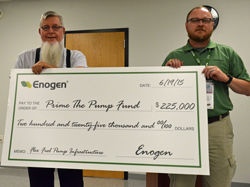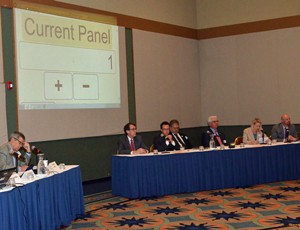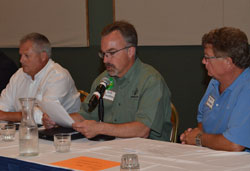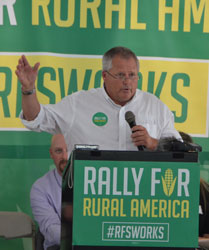 The EPA official in charge of last week’s hearing on proposed volume obligations under the Renewable Fuel Standard (RFS) proved to be open and engaged and truly interested in listening to what stakeholders had to say about the proposal.
The EPA official in charge of last week’s hearing on proposed volume obligations under the Renewable Fuel Standard (RFS) proved to be open and engaged and truly interested in listening to what stakeholders had to say about the proposal.
Chris Grundler, EPA Office of Transportation and Air Quality Director, even left the hearing for a time and walked down the street to listen at the #RFSWorks rally and spend some time talking one on one with those in attendance, including Renewable Fuels Association chairman Randy Doyal.
In his opening statement, Grundler said EPA set the volume levels lower than the RFS statute requires because the law allows reductions under certain circumstances. “We believe those circumstances are upon us,” he said, noting specifically the fact that cellulosic biofuel has not come on line as fast as hoped. “Simply setting the standards at the levels targeted by Congress and trusting this will sufficiently incentivize the market to achieve the mandates … would be irresponsible.”
At the same time, Grundler acknowledged that the statutory volume targets “were intended to be ambitious” and EPA believes the standards they have proposed for 2014, 2015 and 2016 are “ambitious but within reach of the responsive marketplace.”
Grundler listened attentively to testimony presented by stakeholders at the hearing and also encouraged written comments to be sent in to the agency by July 27.
Listen to Grundler’s opening remarks here: EPA's Chris Grundler remarks at RFS hearing












